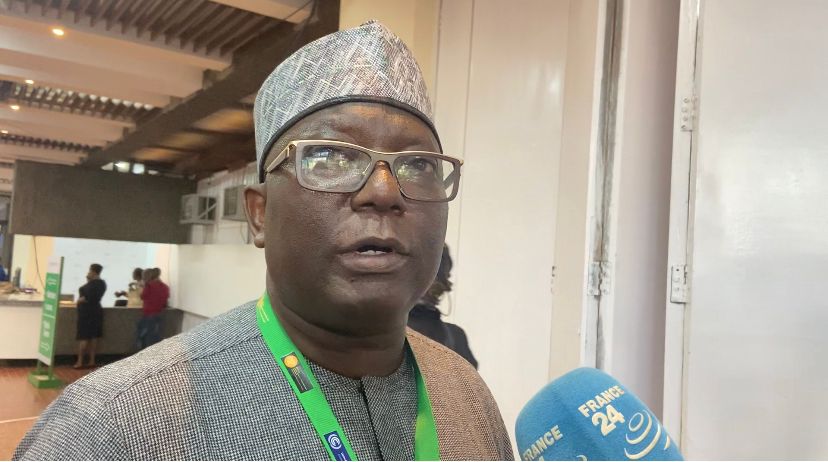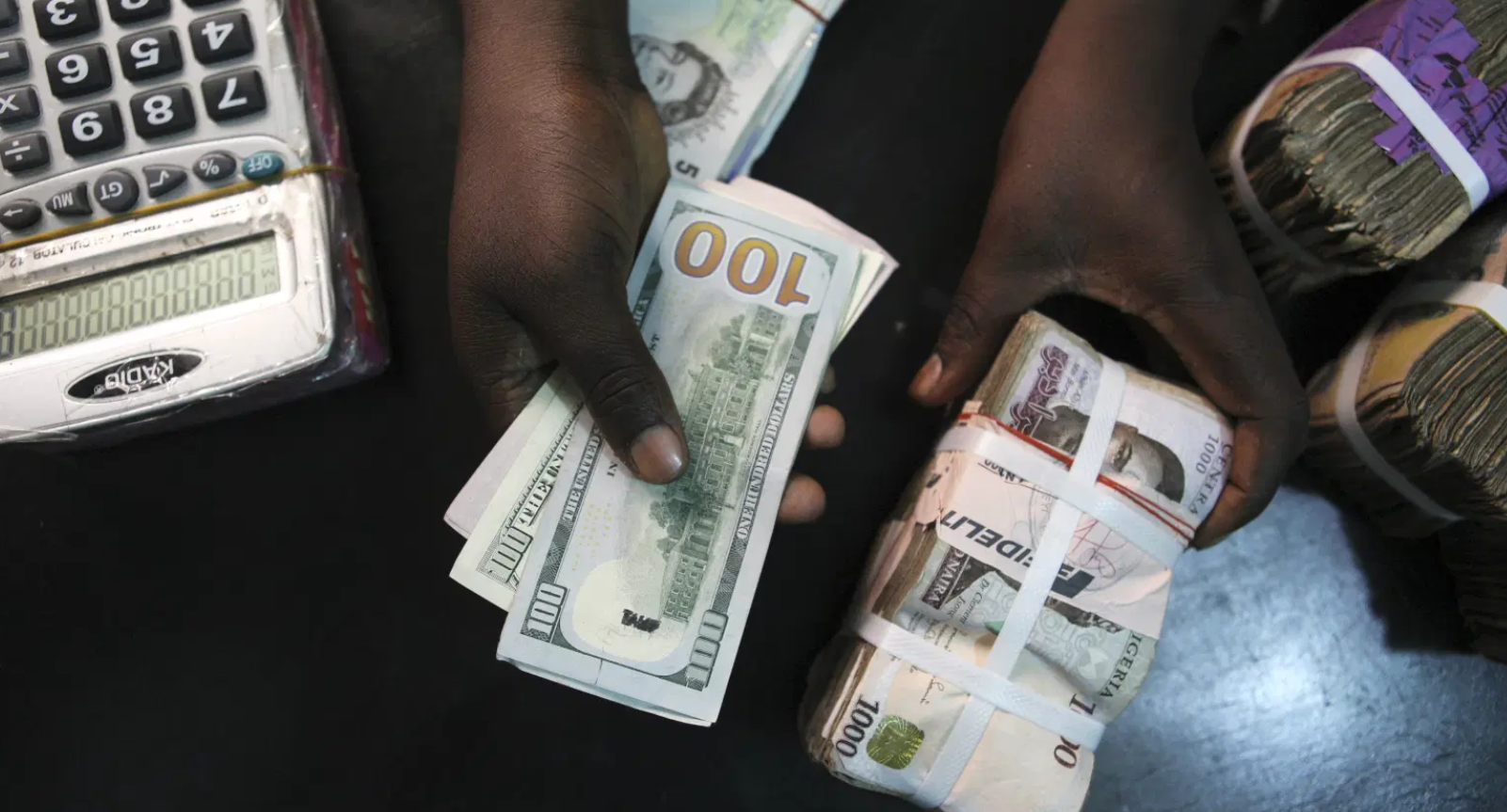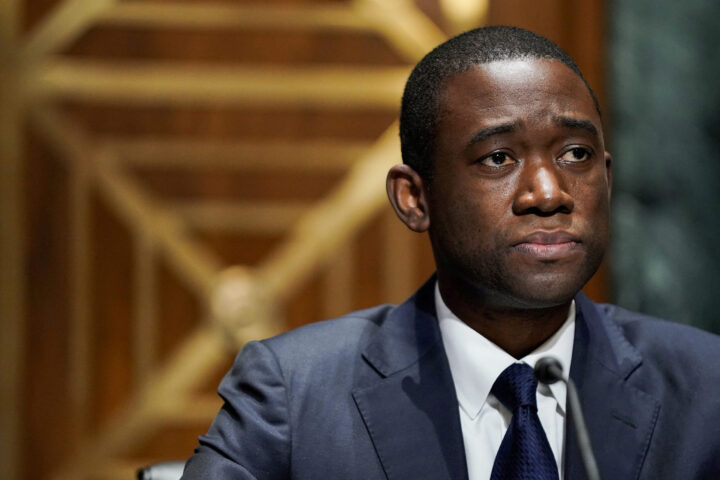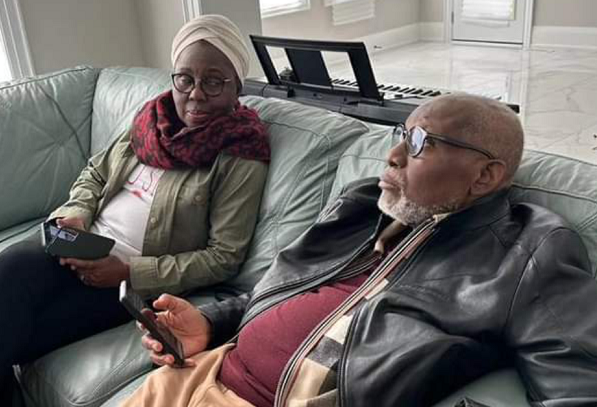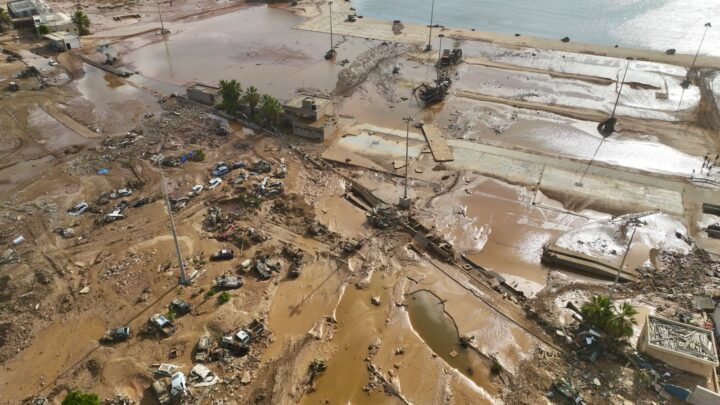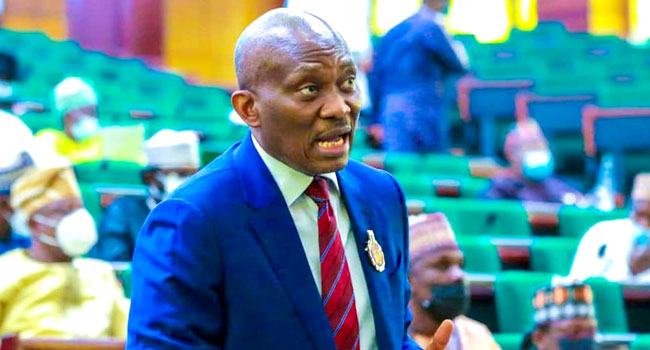As the world progresses to move away from fossil fuels and transition to clean energy, leaders convened at the first Africa Climate Summit to position the continent as a “torchbearer” of renewable energy solutions. In the Nairobi Declaration, which emanated from the summit, African leaders agreed to focus the development of their economies on green growth, reduce their carbon emissions and prevent the world from plunging into a climate catastrophe.
In this interview at the Kenyatta International Convention Center (KICC), Nairobi, Kenya, Salisu Dahiru, director-general of the National Climate Change Council (NCCC), spoke with TheCable’s VIVIAN CHIME on Nigeria’s transitional plans, including the moves to phase out diesel generators which produce emissions that are harmful to the environment.
TheCable: How productive would you say the Africa Climate Summit has been?
Salisu Dahiru: The discussions have been very relaxed, you know, because there is no tension and it has been highly productive and the scope has been broad and also very deep. Almost everything is on the table — issues of finance, loss and damage and some of the specifics for the countries. For Nigeria, what we are really looking at is not the plans the country has put together, but how to get the necessary finance to support its implementation.
Advertisement
However, I don’t feel Nigeria is getting the necessary finance, for instance, for Nigeria’s NDCs, which we all know for developing countries is subdivided into two – conditional and unconditional. For the entire NDCs implementation, what Nigeria requires between now and 2030 is in the neighbourhood of about $17 billion.
So, how to raise that finance is what the minister of environment for Nigeria has laid before participants at the summit, development partners, as well as the various bilateral and multilateral bodies that are also represented.
TheCable: Nigeria’s minister of state for environment mentioned that the country needs $17.7 billion for unconditional commitments. Are we supposed to be seeking funding for this going by the NDC which states that we are responsible for those commitments?
Advertisement
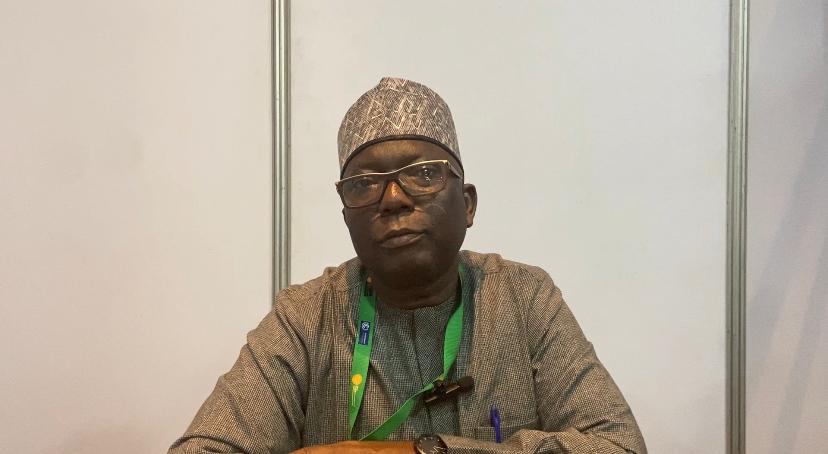
Salisu Dahiru: Probably there is a mix somewhere. If that amount is unconditional, what it does represent is that Nigeria has already set in motion the processes towards realising and raising those funds. For example, we have internal organisations like the Nigerian Sovereign Investment Authority that have already gone forward and kick-started this process by putting in place just some seed funds in the neighbourhood of $50 million as part of the partnership between them and another institution – Vitol – that will be looking at raising funds for green projects in Nigeria.
That will help Nigeria achieve its NDCs, the unconditional part, and at the same time provide opportunities to raise additional revenue by way of voluntary carbon markets, and trading opportunities. This will also raise additional monies or revenues that can also go into deepening and widening the scope and replicating some of the projects that Vitol, for example, is going to provide.
TheCable: Nigeria seems not to be attracting as much financing as other African countries such as South Africa and Kenya. What are we not doing right?
Dahiru Salisu: You see, the issue of climate finance is not an issue of demand and supply that you just see. It goes beyond what we are seeing. It is not as if you just go to the supermarket, you see a product, you have the money in your hand and you buy that product. That is not the issue.
Advertisement
It is also an aspect of international relations. It is also an issue of the investment climate. Sometimes, it is also just bias between the international community depending upon what their preferences are. So, it is all a combination of many factors. However, one thing that Nigeria has done so far is to elaborate its energy transition plan, costed it and made it amenable to attracting the necessary international attention, and also emphasising the opportunities there are in actually implementing this project as a win-win project, not only for Nigeria but for any investor wanting to work in Nigeria.
Nigeria is the largest economy in Africa. Some of the challenges that you think we have, when you just look at the flip side, represent one of the best opportunities for investment in green projects in Africa. We are an investment heaven for green projects, for climate-related investment and whichever investor fails to recognise this, is only doing that at his peril.
TheCable: What are some of Nigeria’s clear and consistent plans currently in place for energy transition?
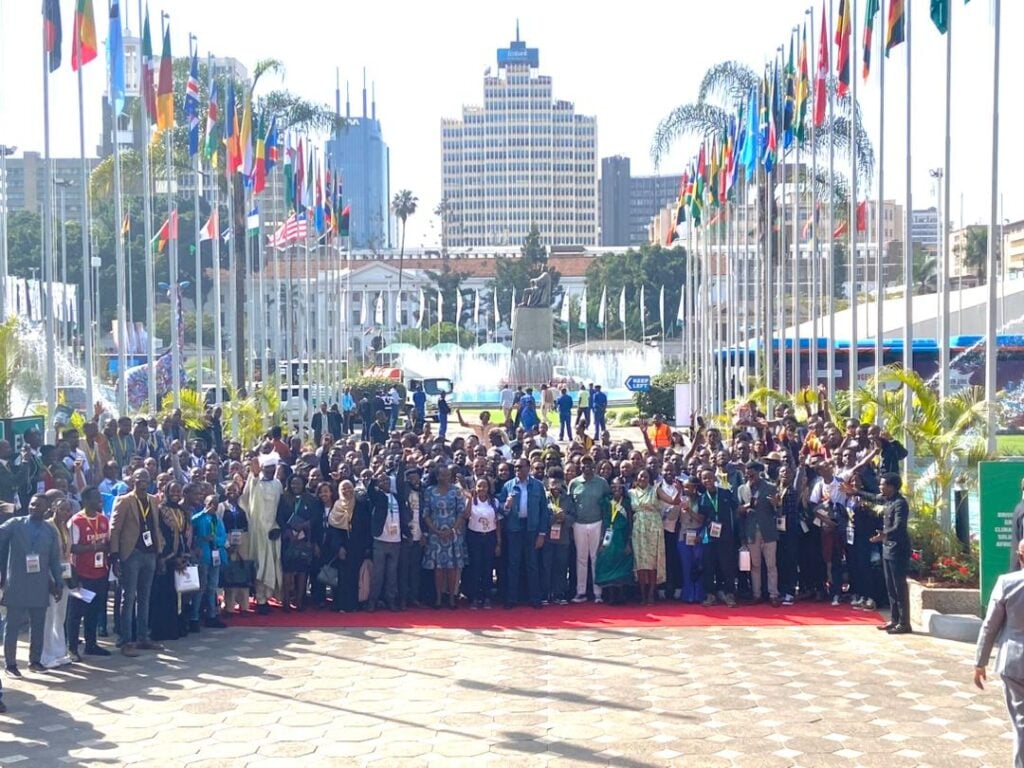
Salisu Dahiru: Nigeria’s energy transition plan has articulated on a sector-by-sector basis what the country intends to do to decarbonise its energy system as a whole. The main focus, like you and I know, is that Nigeria retains this not-so-nice position as the number one country in which you have portable generators that use either diesel or petrol. We have the highest number and concentration of these generators. Some industries are using generators purely for the provision of energy. The focus of our energy transition plan is to phase out these portable generators and generating sets that use either diesel or petrol.
Advertisement
I will also tell you something. On this journey towards energy transition, there are five key sub-sectors that the energy transition plan is going to focus on. One is the oil and gas itself, to decarbonise the oil and gas sector and to also relate it to our NDCs that say we will reduce gas flaring by 2030. To phase out gas flaring by doing what? By commercialising the gas, capturing or storing the gas or diverting this gas for other useful domestic as well as international purposes.
TheCable: How unified is the country in its energy transition trajectory given that we seem to have policies that speak to both fossil fuels and renewables and we have just recently inaugurated the Dangote Refinery? Do we not risk having abandoned assets?
Advertisement
Saliru Dahiru: Take it from me. For the next 10, 20, 30 years, the world will not be able to do away with fossil fuels in a number of sectors. Take the aviation sector for instance. Some of us flew in planes that had over 400 passengers. You think there is technology enough to get the required solar energy to fly that plane from wherever destinations you took it. If you take the shipping sector, the weight, and the massiveness are beyond that of an aeroplane. Do you think there is renewable energy heavy or concentrated enough to fuel and energise those large TransAtlantic ocean liners that carry goods and services from different parts of the world?
So, look, there is the politics of oil and gas. There is the politics of natural resources. There is the politics of international development. The position of the EU, for instance, in which they said they will not support any additional investment in the area of new infrastructure for oil and gas, that’s their business.
Advertisement
But here, in Nigeria for instance, this natural resource that we have, crude oil and associated gas, is needed to provide 95 per cent of our foreign exchange and about 65 per cent of our federal revenues. And you will listen to the EU by telling you we will not support you to do this. But we are saying now, what is the option for the ‘do nothing’ scenario with your gas or with your petrol? Are we going to have to resort to coal which we don’t have? Or solar, which we don’t manufacture? Even with the infrastructure needed to tap the solar or the finance needed to put windmills, the gas infrastructure is the closest thing that is available for Nigeria to bridge the energy gap and help us deal with the issue of energy poverty that we are experiencing.
We don’t have to import the gas. We are not buying it from anywhere. We don’t want to burn it anymore; we are going to use it. So, for Nigeria, the use of gas as a transition fuel in our energy transition plan is a matter of survival. It is unnegotiable. Tell us how to use our gas better, but don’t tell us not to use gas.
Advertisement
TheCable: There have been discordant views as to the advantages of carbon markets. CSOs have kicked against it as a false solution. As someone who has handled REDD+ in the past, what do you have to say about this?
What is the purpose of the so-called carbon market? It is there to serve incentives to be able to get revenue and to also help developing countries to continue to invest or to attract investment in green projects that will solve most of their development challenges because the funding needed to do that is not readily available. Now, it is also an instrument that developed countries and their entities are using for offset purposes. And what is this offset thing? You see, every developed country has developed what is called a carbon budget.
The carbon budget is not about money. The carbon budget looks at the net potential of every entity to emit. So, you calculate how much allowance you are willing to give that company in terms of its emissions levels. If you put a cap or a ceiling, for every ton of carbon dioxide equivalent it emits, it is expected to offset that by doing a project in Africa, in which its total contribution to the global emissions profile is less than four per cent.
In fact, if Africa decides not to decarbonise, we will not contribute more than six per cent to the new emissions profile of the world. We have nothing to lose. That is what some people will say. But ask the same civil society about the risk of having these stranded assets or the risk of continuing to bear the brunt of the negative impacts of climate change. It will continue to be with us.
So, there is a need to have these projects serving as additional safeguards to improve our resilience. Our adaptation to these vagaries of climate change is the driving force. We need the funds to do it. If carbon credits and trading can provide this funding, we believe the end justifies the means.
